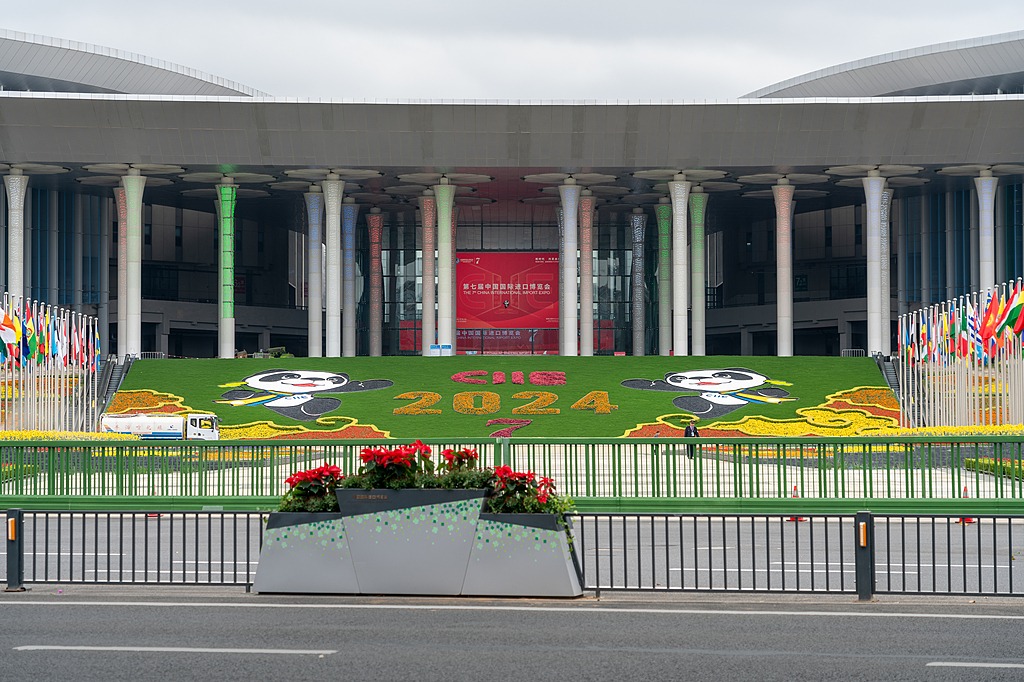A potent platform for the Global South
For the overwhelming majority of the developing world the current international system has failed and needs a major overhaul, one for which BRICS can be instrumental


The 16th Summit of the BRICS, held in Kazan, Russia, from Oct 22 to 24, was the first after the group's expansion in 2023. It brought together representatives from 36 countries, 22 of them heads of state or government, as well as United Nations Secretary-General Antonio Guterres, making it the biggest diplomatic summit held in Russia in a long time, perhaps ever.
At the last summit held in Johannesburg, 23 countries applied to join, and six (Argentina, Egypt, Ethiopia, Iran, Saudi Arabia and United Arab Emirates) were invited to do so. This time, in Kazan, 34 countries applied to join, and 13(Algeria, Belarus, Bolivia, Cuba, Indonesia, Kazakhstan, Malaysia, Nigeria, Thailand, Turkiye, Uganda, Uzbekistan and Vietnam) were invited to do so as "partners". This is a new category that will precede full membership in the group.
In Kazan, President Xi Jinping and Indian Prime Minister Narendra Modi held their first formal meeting in five years, agreeing on common protocols about military patrols along their border. This signaled a breakthrough in Sino-Indian relations, one that potentially holds the seeds for a fresh start in relations between the two Asian giants, the two most populated countries on the planet, and the ones to which the saying "there are only two BRICS in the wall" once applied.
Turkiye's bid to join the group and the presence in Kazan of Turkish President Recep Tayyip Erdogan also marked a key turning point in East-West and North-South relations. For the first time a NATO member and EU member candidate has asked to join BRICS, setting a significant precedent and raising eyebrows in foreign ministries around the world.
However, the 16th BRICS Summit also showed something else: the steady rise of the Global South as a force to reckon with in world affairs. There is a reason why not too long ago one influential journal asked: "Was 2023 the year of the Global South?"
In fact, one could well argue that the most significant geopolitical shift that has taken place in 2022-24 has been the emergence of what was once known as the Third World, that is, the developing nations, now labeled as the Global South, to the forefront of international politics. As the world moves from the unipolar moment of unbridled US hegemony in the post-Cold War period, to one in which power is more evenly distributed, many countries — especially those in Africa, Asia and Latin America — are expressing their discontent with the current world order.
Amazingly, just around the time when these countries are raising their voice on this matter, there are those in capitals such as London and Washington that argue that there is no such thing as the Global South. In their view, the very use of the term is a mistake, and it should be retired, because it is "divisive". A favorite argument of these denialists is that countries such as China and India, as well as those of Central Asia, and a number of nations in the Middle East, are in fact in the Northern Hemisphere, making the notion of the Global South a misnomer.
This, of course, assumes that the notion is a strictly geographic one. It never was. It is a geopolitical and geohistorical concept. It was first used by Carl Oglesby in an article published in the magazine Commonweal in 1969. Referring to the Vietnam War raging at the time, Oglesby argued that the war was the result of "northern domination over the Global South".
In contrast to countries in the developed Global North (i.e., those in the North Atlantic, plus Japan and those in Australasia), countries in the Global South tend to be poorer, to have a colonial past and be often economically dependent on developed nations. Once under the shackles of empire, they are keen to loosen those ties and strike out on their own. This does not mean that several of them have not done quite well. In fact, a key feature of the new century has been the "Wealth Shift" from the North Atlantic to the Asia-Pacific, although that has not yet reflected itself in the power structure of global governance mechanisms like the United Nations and the Bretton Woods institutions.
And while this discontent with extant arrangements has been simmering for quite some time, it has surfaced with a special brio in 2022-24. It first came to the fore with the crisis in Ukraine, when some of the leading countries in Africa, Asia and Latin America did not partake of the Western stance on the war. And although many of them condemned Russia, most of them did not support the unilateral Western sanctions on Russia. They considered the sanctions to be highly arbitrary, a radical weaponization of what might be considered the "utilities" of the international economic system, such as the US dollar, the international banking system, and even the internet, simply to further the interests of Western powers.
And the Global South's frustration with the West, and with the incapacity of current mechanisms to deal with international crises, spiked with the war in Gaza, triggered by Hamas's attack on Israel on Oct 7,2023. A year later, with 41,000 fatal victims in Gaza (16,000 of them children) and the West's unlimited support to Israel, and steady supply of bombs and weapons to "inflict horrors on thousands of children "as the United Nations International Children's Emergency Fund (UNICEF) has called it, any claim that the West stands for the universal defense of human rights has been shown to be mere empty talk.
Beyond these wars, however, there is a generalized discontent across the developing world, a sense that the current international system, whose foundations were laid as far back as 1945 by the victors of World War II, has ceased to function, and that it needs a major overhaul. To further that goal, the BRICS group is seen by many in the Global South as a potent platform.

The author is a research professor at the Pardee School of Global Studies at Boston University, the interim director of the Pardee Center for the Study of the Longer-Range Future, and a former ambassador of Chile to China, India and South Africa. The author contributed this article to China Watch, a think tank powered by China Daily.
Contact the editor at [email protected].
































